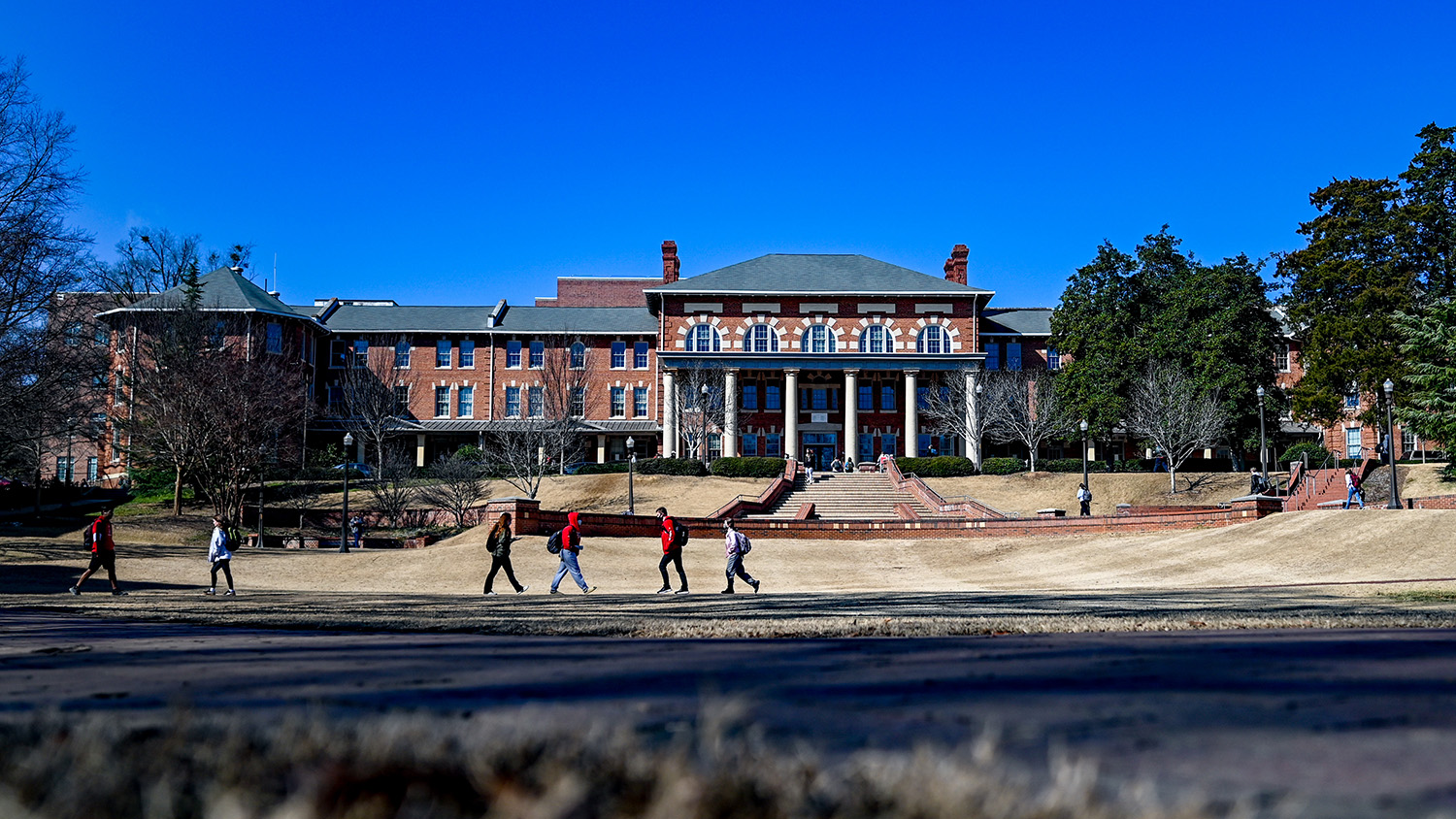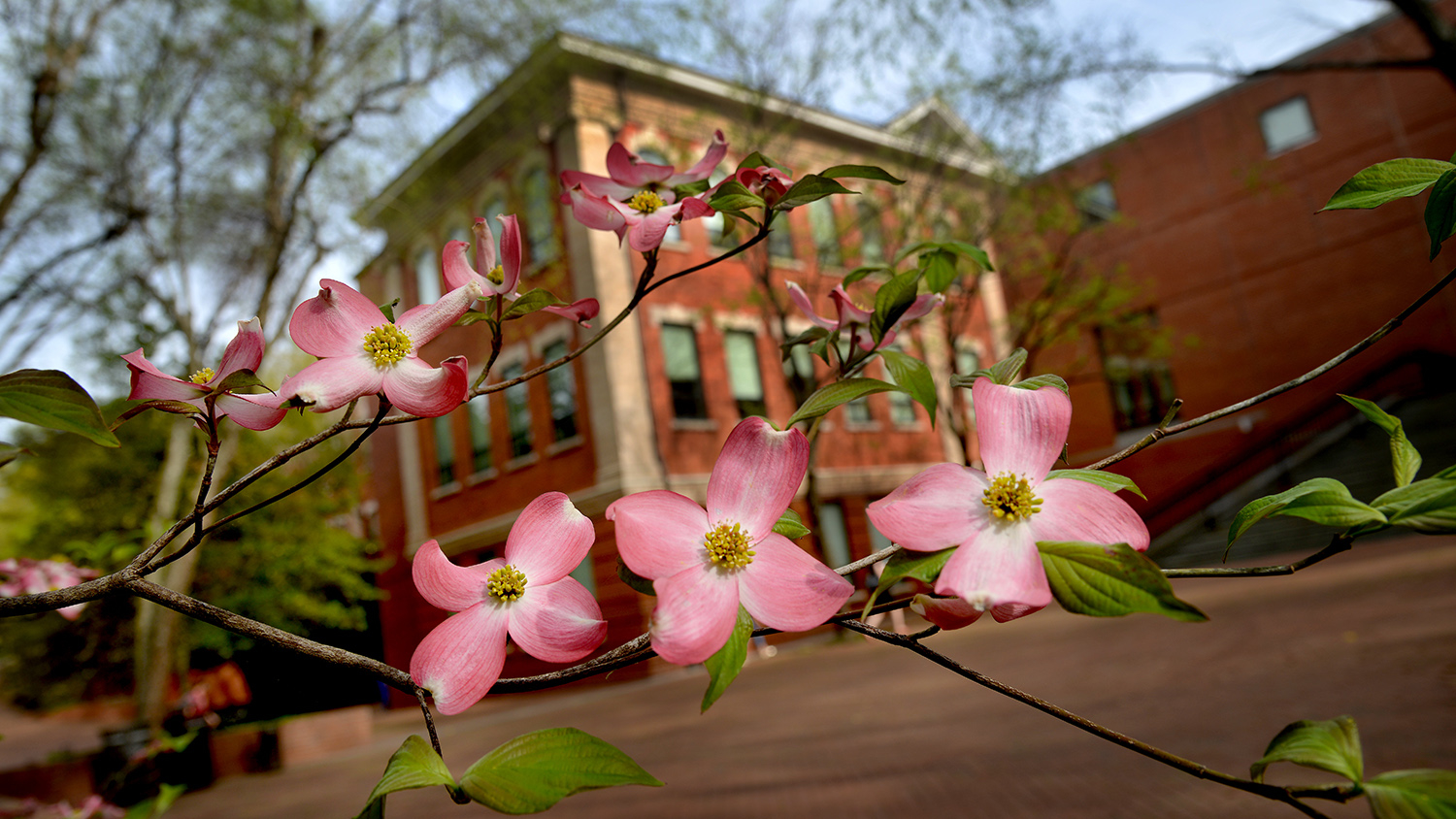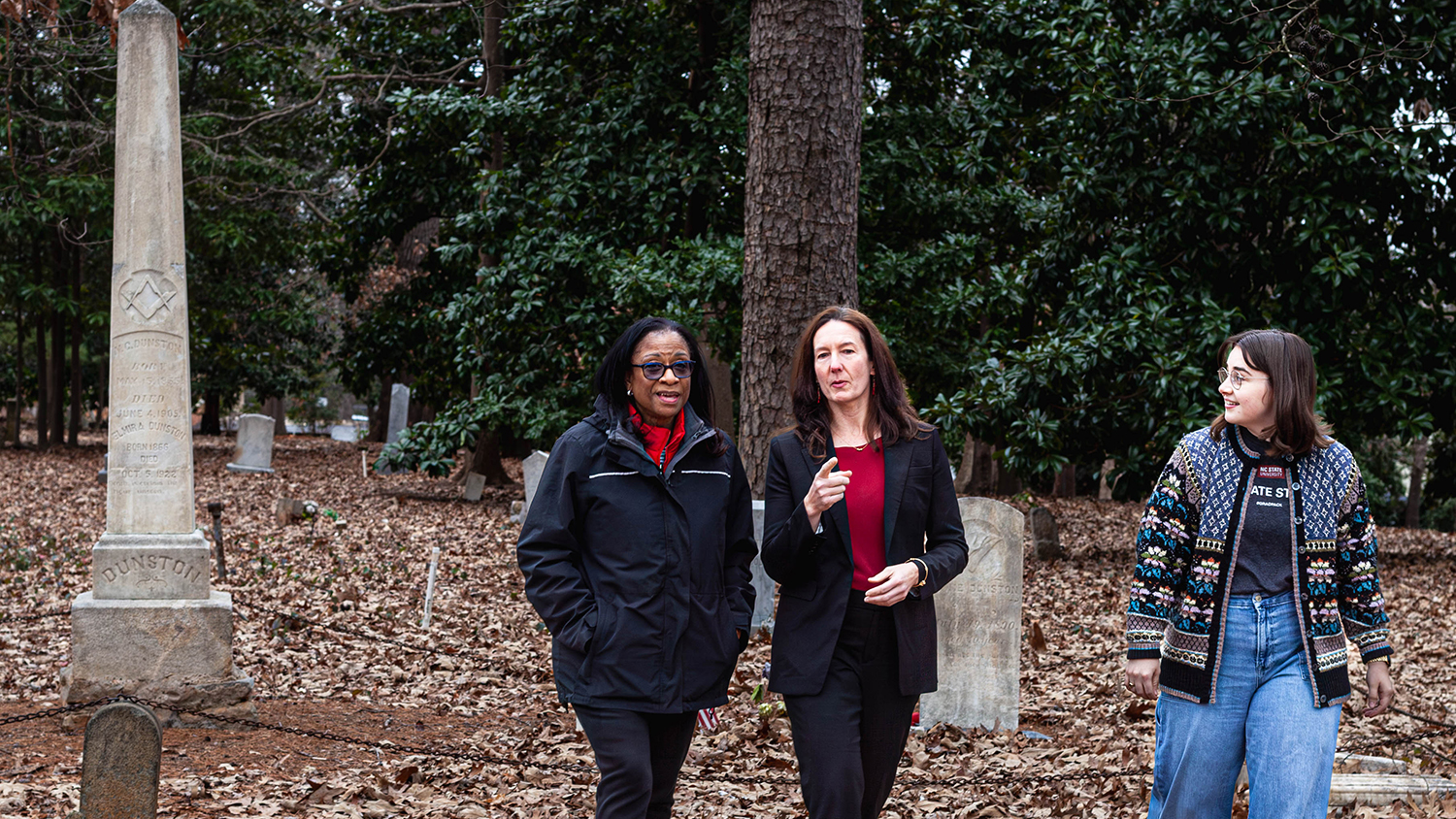The College of Humanities and Social Sciences has selected five professors for its inaugural cohort of Faculty Fellows.
The interdisciplinary fellowship program, launched last semester, brings together thought leaders in the college working broadly on the themes of humans, futures and sustainabilities for a semester-long fellowship in the spring. The program awards each fellow the time, space, travel and research funds (up to $3,000) to complete the fellowship.
The inaugural faculty fellows for the spring 2025 semester are:
- Laura Call, World Languages and Cultures
- Alice Cheng, Communication
- Christian Doll, Sociology and Anthropology
- Nathaniel Isaacson, World Languages and Cultures
- Levi McLaughlin. Philosophy and Religious Studies
“This first cohort of faculty will participate in a series of meetings that involve common readings and sustained conversations on societal and climate challenges,“ said Denis Provencher, associate dean for interdisciplinary affairs and partnerships. “These thought leaders are all doing impressive work helping us address our strategic plan to shape conversations around building a better future.“
The program’s primary goal is to foster collaboration among fellows, leading to sustained discussions and interdisciplinary projects such as publications, grants, curriculum development and community engagement. Additionally, the program aims to share insights with the broader CHASS community, enriching the college with new interdisciplinary research ideas, methodologies, and tools.
Provencher said there are plans for a plenary roundtable session, where the spring 2025 fellows will share what they are learning from their individual projects and collaborations.
Learn more about the inaugural cohort of CHASS faculty fellows and their projects:
Laura Call, an associate teaching professor of French, will work toward the completion of her monograph, Women and Waste, Desire and Disgust: Aging in the Anthropocene. Of her project Call writes: “This work examines how capitalist societies design objects of desire that will necessarily become detritus as new ones replace them, while at the same time, contemporary aesthetics of waste treat these rejected objects as sublime resources.”
Alice Cheng, an associate professor of communication, will continue her research on how AI-driven corporate social responsibility (CSR) communication strategies can be optimized to enhance corporate sustainability efforts and address emerging environmental and social challenges. Her project “Advancing Ethical AI Communication for Sustainability,” aims to develop innovative approaches for advancing long-term sustainability goals by analyzing the effectiveness of AI in promoting transparent and impactful CSR initiatives.
Christian Doll, an assistant teaching professor of anthropology, will work on a project that expands his research on futurity in relation to urban space and state-making. “Futurity In and Through Conflict in Urban South Sudan and Beyond,” is conceived as a collaborative, comparative, interdisciplinary research project that analyzes ways people from different parts of the globe imagine and enact futures through and beyond conflict.
Nathaniel Isaacson, an associate professor of modern Chinese literature, will work on “Aestheticizing Transit and Extraction in Modern China.” The project aims to answer how representations of railways and trains, and other infrastructure projects in the People’s Republic of China, reflect a dialectical contestation of developmentalism and sustainability.
Levi McLaughlin, a professor of religious studies, will work on “What Counts as a Disaster? Religious Studies Perspectives on Calamity and Legibility.” The project examines sociopolitical forces that simultaneously guide management of what counts as a calamitous circumstance and inhibit collective action to mitigate harm. It expands on his inquiry into post-disaster mobilization by religious organizations and, more broadly, the actions of ideologically motivated activists to consider why some people are legible to aid providers while others remain invisible.
- Categories:



